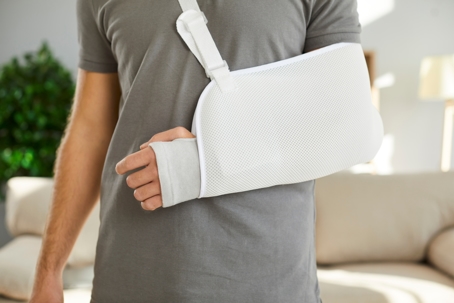You attend an event at a newly remodeled venue. As you explore the venue, you enter the most newly renovated room. Everything looks safe and normal, but unknowingly, you slip on a puddle created by a loose pipe and break your arm. If you did not know about the water and there were no signs or the room was not blocked off, you could file a premises liability claim. Keep reading to learn more.
California Liability Laws
California liability laws focus on the concept of negligence. This means that the property owner chose to ignore their duty of care to make the area safe for visitors. When a property owner is negligent, they are liable, and the injured party could file suit for premises liability.
Premises liability cases require proof that the visitor was hurt due to negligence, and that the property owner is at fault. For example, you visit a hotel and get bitten by bedbugs, and there is sufficient proof that hotel management was aware of the issue, the hotel would be named as the negligent party and held responsible for damages accordingly.
What Is Duty of Care?
The property owner has a duty of care; this means that they must make their property safe for visitors whether that means they do regular repairs or post visible hazard warnings. If the property owner is does not maintain their duty of care, they can be held liable for all injuries on their property.
Compensation in a premises liability case can cover:
- Medical bills
- Physical therapy
- Scarring or disfigurement
- Lost wages
- Pain and suffering
However, if the property owner did uphold the duty of care by alerting visitors to the potential danger of entering a restricted area or closed off the area altogether, the injured party may also be named as a liable party. There must be an abundance of evidence to prove these cases.
Compensation for Premises Liability
Negligent property owners who fail to uphold their duty of care and cause injury owe the injured party compensatory damages. This is money that the liable party pays to compensate the victim in a personal injury case.
Compensatory damages are put into two categories: economic, or pecuniary, damages and non-economic damages.
- Economic damages typically cover medical bills, lost wages, therapies, and property damage.
- Non-economic damages are harder to calculate, as they cover pain and suffering.
If you have been injured due to negligence, you may be entitled to compensatory damages. It is best to consult an attorney for a review of your case to determine your next step.
Filing a Claim
If you have been injured on another person’s property you have the right to pursue a premises liability claim. In these cases, time is of the essence and taking in your surroundings is key. You must be able to produce sufficient evidence that the liable party failed to maintain safety standards and uphold their duty of care. Whether your evidence consists of photos depicting a dangerous hazard or bodily injuries and medical reports, its vital that you collect as much evidence as possible.
The most important thing you can do if you were injured on public or private property is contact an attorney. The Law Offices of Wax & Wax can help you build a case and hold the liable party responsible. Contact our firm today.

